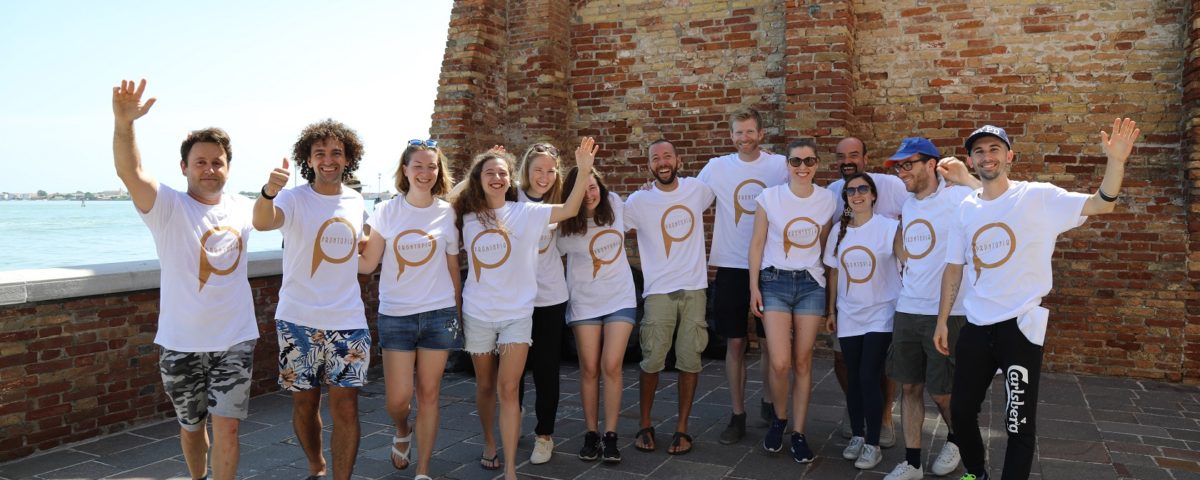- Have any questions?
- Office: +1 (650) 345-8510
- Mobile: +1 (650) 576-6916
- norm@traveltechnology.com
Maybe What is Needed for Leisure and Corporate Travel to return is Local Human Support

Can Anyone Really Capture the SME Travel Market?
August 4, 2020
The Philip Wolf I Knew
March 17, 2021It was 1992 and I was traveling with an associate at Sun Microsystems to Montreal visiting a travel software company. My traveling companion was a classic road warrior who went into auto-arrival mode as soon as the plane landed. As he bolted out of the plane when the door opened, I struggled to keep up as his routine was clearly set in stone.
Of course, that was then, today as the travel industry struggles to map a revival path out of Covid-19, corporations and travel providers must ensure that travelers, such as my former colleague, are ready for all unexpected situations on their trip. There are just too many variables today. Will quarantine be necessary? What if upon arrival Covid-19 is detected? What if the stay is extended and the traveler needs other services after they arrive?
The standard corporate travel solution in dealing with emergency medical situations involves dedicated services such as International SOS. This was an adequate solution pre-Covid-19, but with the global pandemic, these services will be limited to travelers who are ill. What if the traveler needs more mundane things such as a prescription refilled, a repair of broken glasses or simply help in navigating a non-English speaking country? We clearly need a different type of support network for travelers’ post Covid-19, for not only traveler piece of mind, but also the multitude of service needs caused by the pandemic. This can be viewed as an expanded definition of duty of care.
This is what attracted me to become an advisor to Prontopia. At first view, I mistakenly thought Prontopia was simply another gig economy company offering local tour guides through an app. I had seen many of these types of services launched in the past 10 years with little success. In a way, the failure of local tour guide apps was surprising considering gig economy companies such as Uber, Lyft and Airbnb exploded during this same time period. But the idea of local tours never took off, so my first reaction meeting Shannon Kenny, Prontopia’s CEO, was one of extreme skepticism.
That perception has significantly changed over time. I soon learned that Prontopia’s strategy was human support when needed, not local city tours. Prontopia started in Italy in May 2019 with their headquarters in Venice. There they developed strong relationships in the city and organized social impact activities such as cleaning plastics from the lagoon. When the floods hit later that year, Prontopia was well positioned to provide service to foreign travelers. Unlike other gig economy companies, Prontopia views their role in a more holistic way. Gig economy services will only work if the workers are properly trained and compensated. It also became clear during the initial launch, that local support services such as Prontopia must work closely with local government officials to succeed.
The next country for expansion for Prontopia in October 2019 was Spain. Shortly after launch in Barcelona the city erupted into serious riots over the Catalan separatist movement causing disruption for travelers. Again Prontopia was there to help travelers impacted by the protests.
When Covid-19 hit first Italy and then Spain, Prontopia expanded their services to support both travelers and local disadvantaged citizens. This required Prontopia to adhere to the highest public health safety standards to protect both their assistants and customers. Working with local authorities in both counties, Prontopia provided critical local support during the pandemic’s worst hours.
Recently the team expanded to the U.S. offering Prontopia services in Santa Barbara and San Diego, California. Based on Prontopia’s “baptism by fire” experience in Europe the company was able to implement early, consistent high-level safety protocols in the US during a time when many people were not taking the pandemic very seriously. Prontopia now has a duel focus of supporting disadvantaged people during the pandemic while continuing to build a network of human support for the traveler.
The travel industry has often suffered from a mentality that once the traveler is on their trip the only support needed is around the reservation. For corporate travel, it is the corporations’ responsibility to provide duty of care and the TMCs role is to support this through data which helps locate travelers during an emergency. TMCs are not equipped to provide local help.
There is an excellent opportunity for Prontopia to partner with the leisure and corporate travel industry stakeholders to provide support as travelers return to the skies. Multiple surveys have indicated that travelers need information about Covid-19 restrictions and assurances regarding cleanliness and safety, which continues to be the key focus of our industry. Adding a service such as Prontopia provides additional reassurance that support is there if something goes wrong. As the travel industry emerges from the Covid-19 lock down, providing human support in destinations, especially where the traveler does not speak the local language, could be a key part of the recovery. I encourage the all stakeholders in the travel industry to take a closer look at Prontopia. Note: Prontopia will be presenting at the upcoming Phocuswright European and U.S. Conferences.


